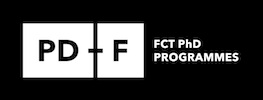Secondary menu
Aims of the Programme
Regenerative Medicine emerged about 20 years ago as a new field holding the promise of replacing damaged tissue and/or stimulating the body's own repair mechanisms to heal previously irreparable tissues or organs. In the more optimistic perspective, strategies based on regenerative medicine could bring new therapeutic solutions able to solve very serious and untreatable health problems with high social impact, including: the prevention/cure of paralysis/blindness through regeneration of tissues from the central nervous system or retina; regeneration of cardiac tissue; treatment of Parkinson/Alzheimer diseases or diabetes; production of new teeth; or regeneration of musculoskeletal tissues (e.g. cartilage, tendon and bone). In this context tissue engineering has been proposed as a multidisciplinar field that combines engineering principles and the employment of the natural human biology to enhance the success of the therapeutic strategies aimed at the replacement, repair, maintenance, and/or enhancement of tissue function. The success of such approaches is often highly dependent on the use of stem cells in order to elicit the regenerative process of tissues and organs. Such cell sources offers a much higher proliferative capability and the possibility of being differentiate into distinct cell lineages, as compared with primary cultures, enhancing the therapeutic capability of cellular/tissue engineering products. In these domains, several engineering concepts must be clearly mastered at high level, including in Bioengineering (cells expansion, dynamic cultures, growth factor production), Chemical Engineering (systems for the delivery of bioactive agents, design of injectable/smart systems), Polymer Engineering (modification and processing of polymers and composites), Mechanical Engineering (bioreactors, mechanical properties of scaffolds and hydrogels, microfluidics), Nanotechnologies (design and production of nanoparticles/nanofibres, nanoscale surface modification), or Electronic engineering (biosensors and control systems). An educational scheme at the graduate level to be able to address an in-depth training in Tissue Engineering, Regenerative Medicine and Stem Cells (TERM&SC) should accommodate such different engineering aspects, but complemented with specific knowledge in the field of basic sciences, such as Chemistry (materials synthesis, surface modification), Biology (stem cells biology, in vitro and in vivo response to biomaterials) and clinical sciences, for example.






